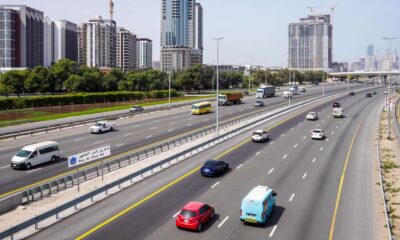Private schools in Dubai will not be subject to comprehensive inspections throughout the 2024-25 academic year, as per a new directive from the Knowledge and Human Development Authority (KHDA). The only exception to this policy applies to newly established schools that are entering their third year of operations during the upcoming academic year. This recent decision was communicated to all Dubai schools via a circular issued by the KHDA. The authority aims to streamline the inspection process, focusing on institutions at a critical stage of their development while temporarily relieving more established schools from the full inspection regimen.
The KHDA circular reads, “We would also like to inform you of an important update to school inspections during the 2024-25 academic year. Full school inspections will not be conducted across all private schools in Dubai, except for new private schools that will be in their third year of operation during the academic year.”
However, schools may request a comprehensive inspection from the Dubai Schools Inspection Bureau (DSIB). Such requests will be reviewed and approved at the discretion of the Knowledge and Human Development Authority (KHDA). Schools are required to submit their requests by July 5, 2024. The KHDA issued, “Schools with approved requests will be notified during Term 2 of the 2024-25 academic year.”
Dubai schools traditionally undergo annual inspections, during which they are evaluated and assigned ratings. However, these inspections were suspended during the pandemic. The ratings, which span from ‘Outstanding’ to ‘Weak’, are determined based on a defined set of criteria.
What is the current status of the ongoing inspection of schools under the KHDA?
The latest circular also mentions, “DSIB will conduct other visits that target specific focus areas and include ongoing monitoring activities. Schools will be notified ahead of time on the areas of focus and priorities for the next academic year.”
All schools are required to regularly update their ‘Self-Evaluation Form’ and online school profile over the course of the next academic year. It is imperative for schools to ensure that all necessary information is readily available for review by DSIB. Additionally, schools must consistently administer all critical external benchmark assessments.
Belrehif stated, “The School Self-Evaluation Form is an essential part of schools’ ongoing cycle of review and improvement planning and helps them measure how well they are doing in different performance indicators outlined in the UAE School Inspection Framework.”
Impact on School Rankings and Fees
The ability of schools to increase their fees is contingent upon their most recent evaluation by the DSIB. Schools that receive higher ratings are typically allowed to impose more substantial fee hikes. In April 2024, the KHDA introduced an Education Cost Index (ECI) set at 2.6 percent which would enable schools to modify their tuition fees for the 2024-25 academic year accordingly. The private schools in Dubai had been granted permission to raise tuition fees by up to 5.2 percent, as determined by their latest KHDA inspection outcomes.
In a recent interview, Fatma Belrehif, DSIB CEO, announced, “The School Fees Framework is the mechanism by which schools can adjust their fees annually. The rate by which schools can adjust their fees is tied to each school’s most recent inspection rating. Any fee adjustment by schools must be approved by the KHDA. Schools will be notified in case of any changes or updates to the fee framework.”
How does this circular affect schools and parents?
Schools: Schools may need to adapt their internal quality assurance processes, relying more on self-evaluation and external feedback to maintain and improve standards.
- Strategic Planning: With the absence of formal inspections, schools might focus on alternative ways to attract and retain students, such as enhancing their curriculum, extracurricular offerings, or investing in teacher development.
- Performance Monitoring: Schools will need to find new methods to monitor and report their performance, potentially increasing collaboration with parent-teacher associations and using third-party evaluators.
Parents: Guardians and Parents may find it more challenging to assess the quality and performance of schools without the KHDA’s annual inspection reports. They might need to rely on word-of-mouth, online reviews, and direct engagement with schools to make informed decisions.
- Engagement and Feedback: The halt in inspections could encourage more proactive engagement between parents and schools. Parents may need to take a more active role in communicating their expectations and concerns to ensure their child’s educational needs are met.
- Financial Considerations: With the potential stability in school fees, parents might experience a degree of financial predictability. However, they should stay informed about any changes schools might implement to maintain quality in the absence of inspections.
As the educational community awaits further details and guidance from the KHDA, stakeholders are keenly observing how this decision will shape educational practices and policies in Dubai for the upcoming academic year.


 Announcements6 months ago
Announcements6 months ago
 Announcements5 months ago
Announcements5 months ago
 Sports5 months ago
Sports5 months ago













